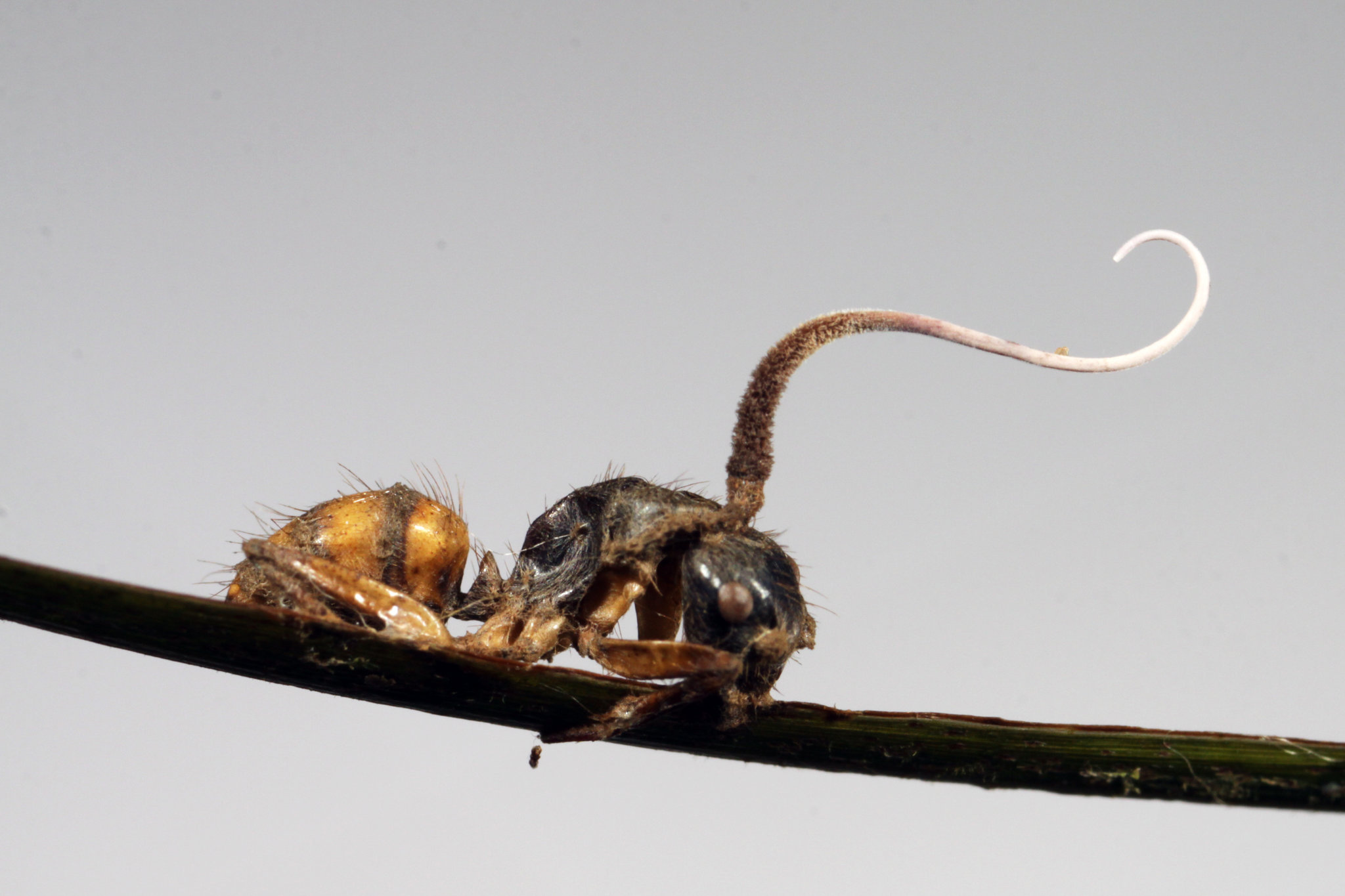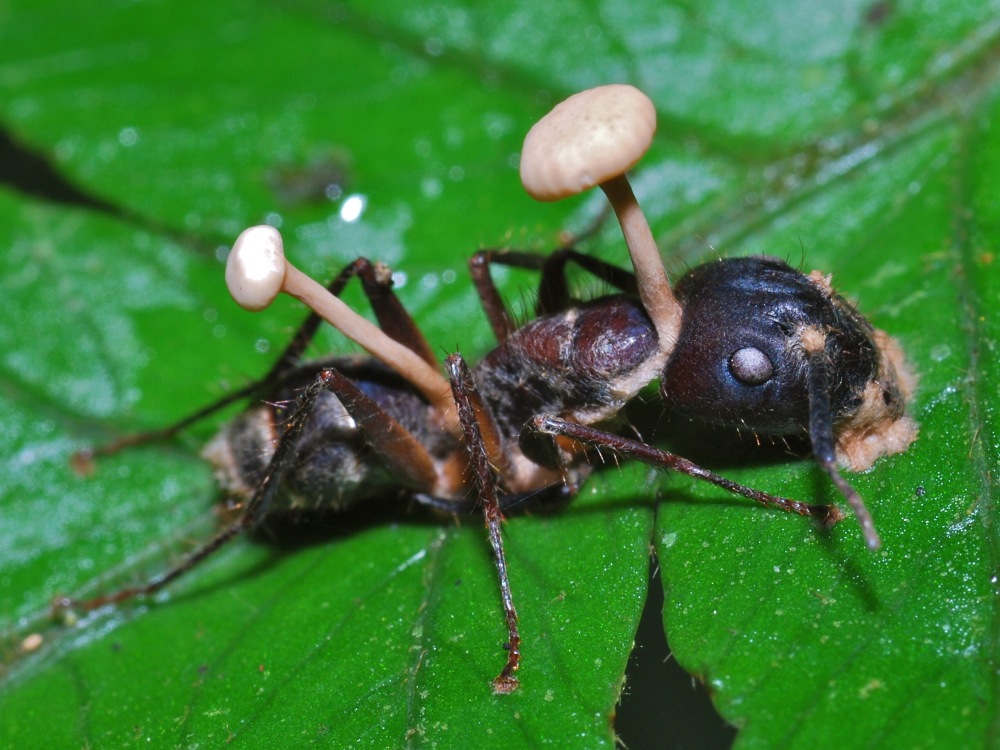'Last of Us' vs Mushrooms: What's Real and What Isn't
Regarding "Last of Us"
A lot of folks have seen the new show "Last of Us" based on the video game of the same name. As the resident "mushroom guy" to all of my friends, I've been getting hit with a lot of questions, so I figured I'd take some time and talk about Last of Us, specifically what they get right, what they took some liberties with, and exactly how terrified we ought to be.
Are cordyceps really as dangerous as they are portrayed in the show "Last of Us?"
No, at least not presently. Cordyceps are not as dangerous as they are portrayed in the show "Last of Us." In the show, cordyceps are responsible for a deadly fungal infection that causes people to become zombie-like creatures. In reality, cordyceps are a type of fungus that do not typically cause harm to humans, although certain species can infect insects and other small animals.
That said, it's worth pointing out that the show DOES qualify that it is not dealing with cordyceps as they are currently, but as they might evolve into if climate change continues, and the earth warms significantly from where it currently is.
Okay, so what ARE cordyceps?
Cordyceps are a type of parasitic fungus that invade and grow inside the bodies of insects and small animals. They feed off of their host's tissues and can eventually cause death by consuming vital organs. The fungus also produces spores that are released when the infected animal dies, allowing for further spread of the fungus. Cordyceps have been used in traditional Chinese medicine for centuries and are believed to have a range of medicinal properties, including anti-inflammatory and anti-cancer effects. They have also been used as a dietary supplement for athletes, as they are thought to improve stamina and endurance.
Something the show gets right though is that the fungus does produces spores that are released when the infected animal dies, allowing for further spread of the fungus. Like all life, fungi are just as interested in persisting as humans are. The show makes this more dramatic than it is in reality, with mouth-based tendrils and such, but fungi like to spread, and perhaps spores don't appear as dramatic on the screen as mouth-tendrils.
Can cordyceps take over your brain?
No. Cordyceps are not one of the fungi that are known to cause any kind of neurological changes as they currently exist. But (and the show gets this right) -- that statement is limited to "in humans." If we expand the field, then the answer changes.
Ophiocordyceps fungi does exhibit the mind control behavior described in the show to ants. If an ant if infected with ophiocordcyceps, it is very bad for the ant. Over the course of a week or two, the fungi will begin to spread within the ants body, sucking any nutritional value out of the ant that it can, and replacing ant parts with mushroom.
Don't stop reading, it gets way worse.
Before the ant dies, the fungus will take control of the ant, and instruct it to leave its nest (but not TOO far) and climb a nearby plant to a height of approximately 25 centimeters (which is the where the fungus grows best) before commanding the ant to lock its mandibles around the leaf permanently (like a head on a spike, basically.)

Once the ant has died, or perhaps even as the ant is dying, the fungus will burst through the ant's head like an Aliens chest-burster, grow into a bulbous capsule, filled with spores. Shortly thereafter, the capsule will burst and the spores will spread down onto the rest of the ant colony.

Cordyceps fungi
Cordyceps work similarly on caterpillars. They infect the caterpillar, hijack it to instruct it to climb to the top of a plant, attaches the caterpillar to a leaf or stem, and then forces it to spin a cocoon around itself so that the fungi can incubate, grow, and reproduce within the caterpillar. After the caterpillar has died, the fungi release its spores to other caterpillars, repeating the cycle.

So, Last of Us is a true story?
Well, that's kind of a leap right now. It's fiction, obviously, and there are not currently mushrooms that have evolved to be able to effect neurological changes in humans, but of course there are fungi that have distinct neurological effects.
Psilocybin mushrooms, also known as "magic mushrooms" contain the psychoactive compound psilocybin, and other mushrooms like Amanita Muscaria contain other psychoactive compounds like muscimol, which can lead to altered states of consciousness, visual and auditory hallucinations, and things of that sort, but nothing that we'd currently describe as a mushroom exhibits properties that we would realistically describe as "mind control"
Additionally, Aspergillus and Penicillium species contain or can produce mycotoxins that have a range of neurological effects, including memory loss, confusion, hallucinations, and even seizures. Not quite mind control, but not significantly less terrifying in my opinion.
But of course, if you can imagine a world in which the median earth temperature was perhaps a few degrees warmer, and perhaps one in which fungi evolve to live through this, or perhaps one where humans evolve or are conditioned to be more receptive to fungal infections, then yes, we should be absolutely terrified.
